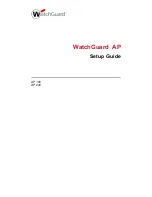
_______________________________________________________________________________________________________
_______________________________________________________________________________________________________
© Virtual Access 2018
GW1000 Series User Manual
Issue: 2.3
Page 85 of 463
root@VA_router:~# pgrep -fl syslogd
5409 /sbin/syslogd -h VARouter -L -R 192.168.14.202:514 -l 7 -r 8 -s 400 -O
/root/syslog.messages -b 3 -C64 -R localhost:2048
Changes to the syslog configuration will take effect with a restart of
syslogd
root@VA_router:~# /etc/init.d/syslogd restart
10.5.4
NTP process
To check the NTP process is running correctly, enter
pgrep –fl chrony
root@VA_router:~# pgrep -fl chrony
2553 /usr/sbin/chronyd -f /etc/chrony.conf
Changes to the NTP configuration will take effect with a restart of
chrony
root@VA_router:~# /etc/init.d/chrony restart
10.6
Advanced filtering of syslog messages
Syslog messages can be filtered against a series of rules that are checked for
each message generated. If a match is found, then the specified action is taken.
If no match occurs, then the default action is taken, as defined in the main
system logging settings.
A message may match multiple filters. They are processed in the order listed.
For example, you may wish to record authorisation messages in the main
system log, but also make a copy in a separate authorisation log which can span
a much longer period of time.
By default, all matching filters will be applied to each message. However, you
can mark a filter to indicate that after it matches, no further filter processing
should take place.
The filter rules are defined in a free-form text list in the syslog_filter configuration
section. There are two section types, one for messages to be stored locally, and one for
messages delivered remotely.
Configuring advanced filters on the web interface is not currently supported; they must
be edited using the command line interface.
10.6.1
Advanced filtering using command line
Filters are defined in the syslog_filter configuration section of the system package. A
set of filters can be either local or remote.
•
All messages are matched against both local and remote filter rules, if configured.
















































